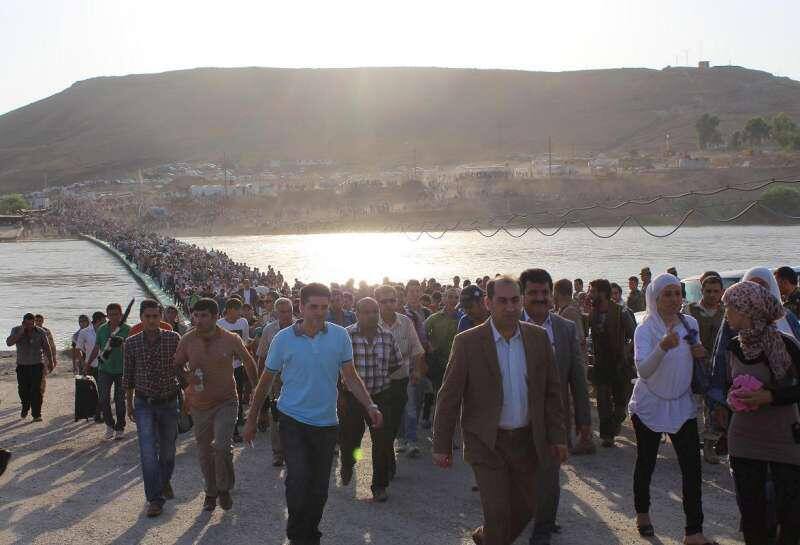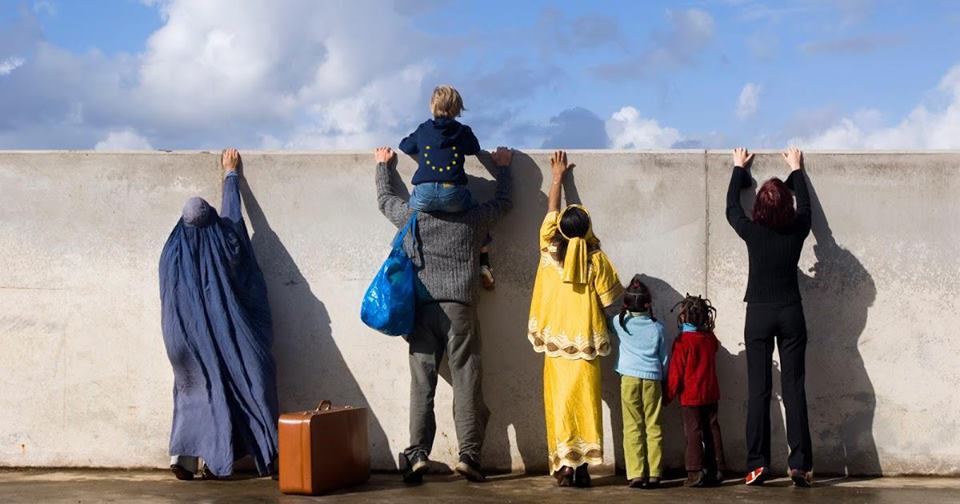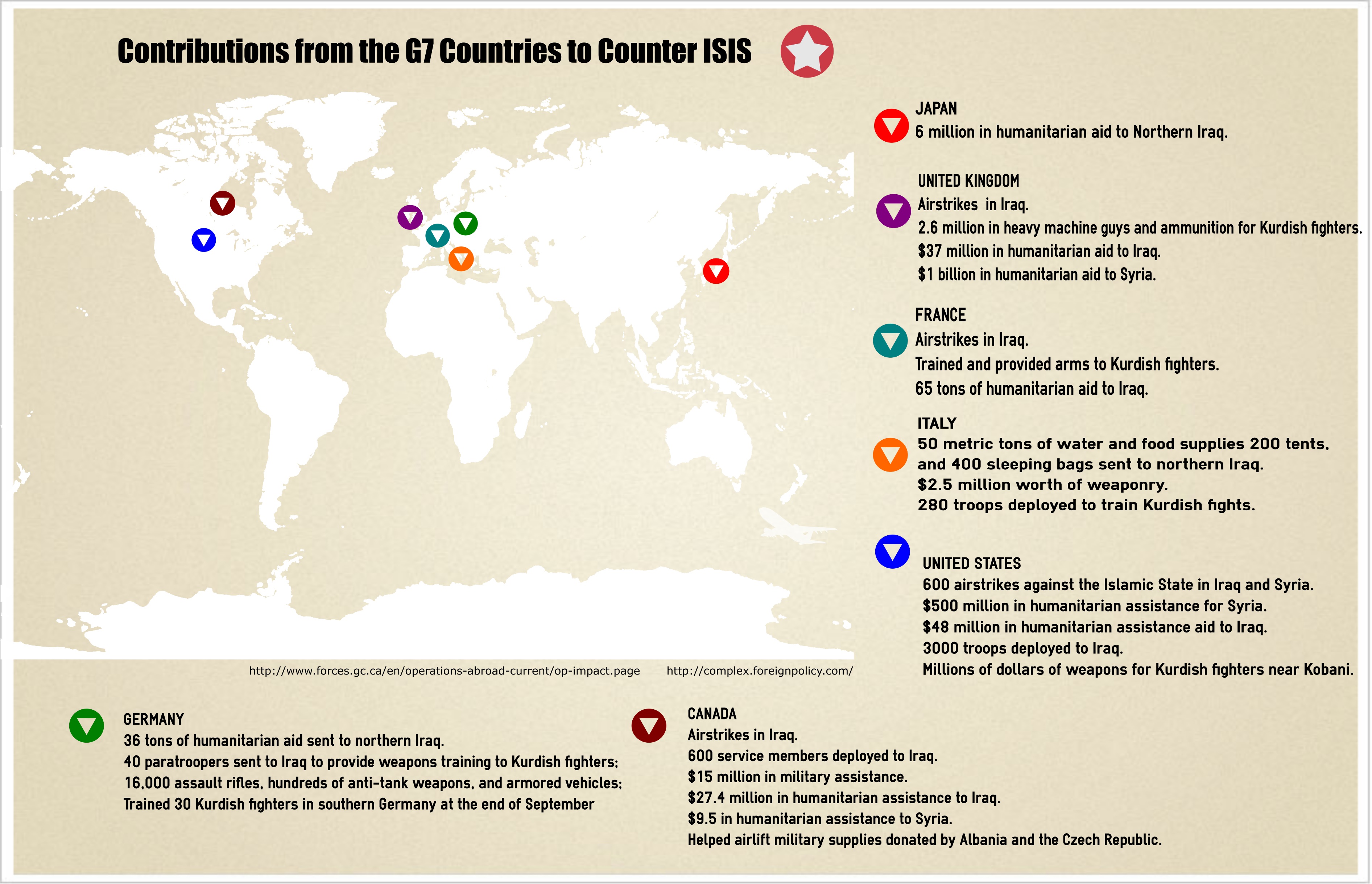
According to the United Nations High Commissioner for Refugees (UNHCR), approximately 2.8 million Syrians have sought refuge in neighboring Lebanon, Jordan, Turkey, Iraq, and Egypt since the end of 2011. Some have made their way into other parts of Northern Africa, while others have fled to both East and Western Europe. The UNHCR, which plays a vital role in tracking these refugees, has said the average rate of monthly registrations for 2014 currently sits at approximately 100,000 Syrians. In April of 2014, there was an estimated 90,000 registrations for Syrians in Lebanon alone, the largest recipient thus far. The Syrian state is hemorrhaging.
Lebanon was first to begin taking in refugees in the northeast near the Bekaa Valley. In total, 1,089,621 Syrians have been registered in Lebanon as of June 3, 2014. For a country whose total population amounts to just over 4 million, about a ¼ of the current population are Syrian refugees. To put things into perspective, if Canada were to receive the same number of refugees as Lebanon does per capita, it would be the equivalent of approximately 9 million refugees.

The problem with these figures is that they only account for ‘registered’ Syrians. Wealthier Syrians left early on in the civil war and purchased properties from Gulf investors exiting the Lebanese market. Middle and lower class Syrians fled to Lebanon in early-mid 2012, hoping to find housing and some form of employment. There is also a sizeable number of refugees who reside in Beirut, but refuse to be ‘registered’ out of fear of being identified as either government or rebel supporters.
There are more Syrians in Lebanon than are being accounted for and this can have vast negative impacts on a country that already has enough homegrown political unrest. One of those impacts is the downward pressure on wages due to a large influx of cheap and exploitable labour. 92% of Syrians are currently working without any formal contract. As a result, many Lebanese merchants are willing to hire Syrian workers over Lebanese ones. Mary Kawar, Senior Employment Specialist at the ILO Regional Office for the Arab States (ROAS) says this results in “both Syrian refugees and Lebanese residents…suffering from the effects of an unregulated labour market”.
The tension in the labour market is not the only place where Lebanese and Syrians confront one another. With Hezbollah currently fighting alongside the regime, Bashar al-Assad’s recent elections victory, and a political deadlock on the election of a new Lebanese president, the situation can quickly escalate. Many in the Lebanese parliament and citizenry see the Syrian civil war as one of the main reasons behind their current political troubles. A main clog in discussions between the two major political blocs in Lebanon is over what role to take in Syria. If some form of consensus is not reached, it will quickly become a source of inter-communal conflict, the kind that has not been seen since the final days of Lebanon’s fifteen year civil war.
Tensions also arise from the inability of the Lebanese state to accommodate this influx of refugees. Children are being placed in overcrowded classrooms, hospitals are being overrun with sick and malnourished Syrians, and the state continues to rely heavily on foreign donations just to stay on its feet. Lebanon’s infrastructure simply cannot withstand a sudden 25% spike in its population. Unlike other host countries, Lebanon has no formal refugee camp setting. There is no Zaatari refugee camp, as in Jordan, and no Domiz camp, as in Iraq. Makeshift tents are popping up in various villages, under bridges and main highways while others are seeking refuge in empty apartment buildings.
Ken Roth, the Executive Director of Human Rights Watch, recently pointed out that negotiation between the opposing sides of the Syrian war is going to be a long drawn out process. What requires immediate attention is the humanitarian needs of the Syrian people. This involves opening up the borders to allow organizations on the ground to administer aid inside Syria. While this may not alleviate the current pressures facing Lebanon, it can at the very least reduce the mass influx of Syrians into what is essentially a fragile state.




